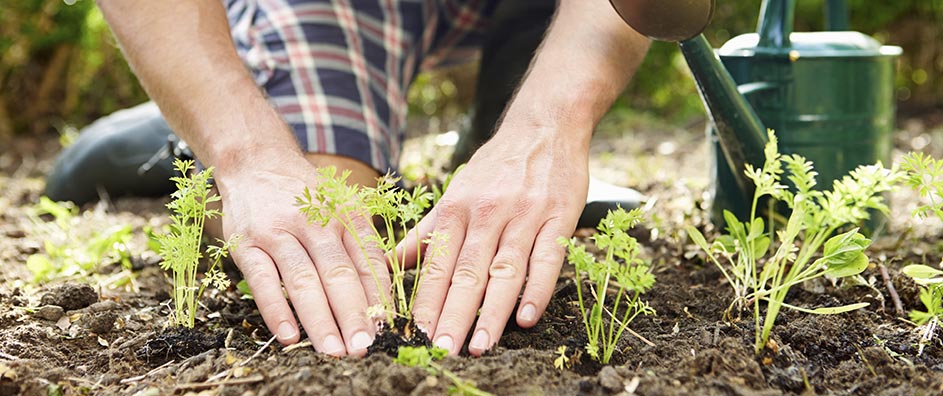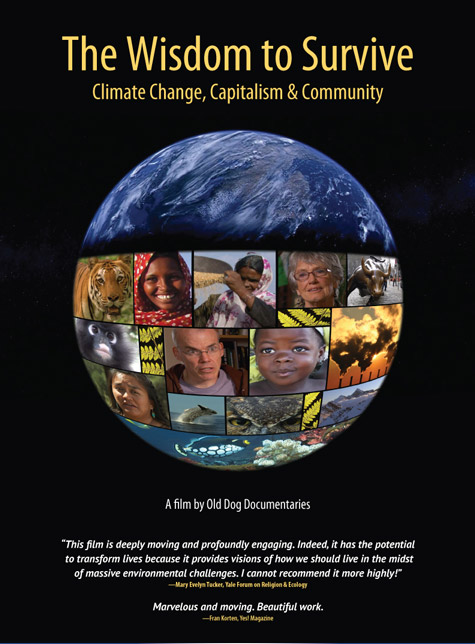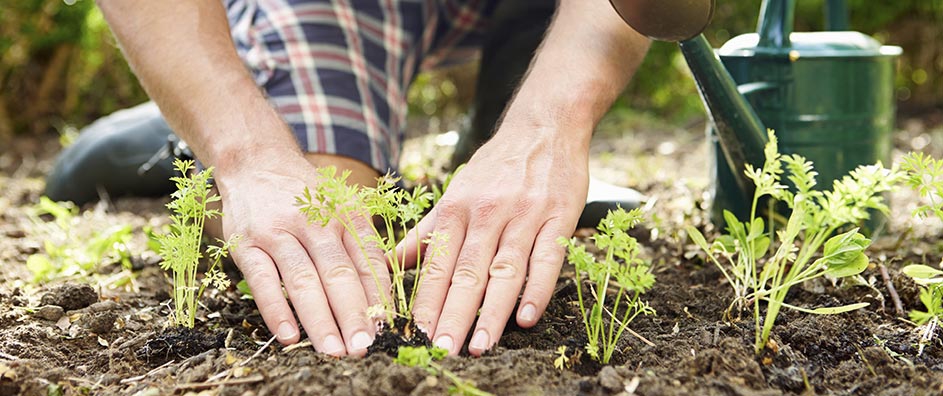The views expressed in our content reflect individual perspectives and do not represent the authoritative views of the Baha'i Faith.
 Last night my wife Teresa and I went to the movies, and saw a new documentary on the environment called “The Wisdom to Survive.”
Last night my wife Teresa and I went to the movies, and saw a new documentary on the environment called “The Wisdom to Survive.”
If you get a chance to see this film, I’d recommend it.
Subtitled “Climate Change, Capitalism and Community,” the documentary focuses on the challenge of climate change, and asks a profound question: “Will we have the wisdom to survive?”
Focused on the framework of contemporary society’s belief in unlimited economic growth, the film movingly shows the impact of such gross materialism on the world’s poorest and hungriest people.
 The film includes interviews with climate experts and scientists – the normal course for environmental documentaries – but departs from the norm when it talks to spiritual leaders from a variety of traditions around the world.
The film includes interviews with climate experts and scientists – the normal course for environmental documentaries – but departs from the norm when it talks to spiritual leaders from a variety of traditions around the world.
One of the points the spiritual leaders make in the movie resonated deeply with my wife and I. Asking how we can continue to evolve as human beings in the face of such a materialistic, disruptive and violent assault on the natural environment, several of those spiritual leaders said that we need, as a species, to find our way back to our kinship with all of the other species on the planet, with the plants and the animals that sustain the entire ecosphere. We have lost that sense of close relationship, a Navajo leader points out in the film, and the destruction we see in the natural world has increased as a result.
The Buddhist scholar and environmental leader Joanna Macy also speaks in The Wisdom to Survive. One of the leading voices in the deep ecology movement, Macy wrote the books World As Lover, World As Self: Courage for Global Justice and Ecological Renewal and Mutual Causality in Buddhism and General Systems Theory: The Dharma of Natural Systems. Macy makes a powerful argument in World as Lover, World as Self that a huge part of industrialized society’s massive environmental problem comes from seeing ourselves – human beings – as somehow separate from the world.
From a Baha’i perspective, this critical core realization – that we are one with the world — underpins all environmental awareness. The Guardian of the Baha’i Faith, Shoghi Effendi, made this same powerful point more than 80 years ago:
We cannot segregate the human heart from the environment outside us and say that once one of these is reformed everything will be improved. Man is organic with the world. His inner life moulds the environment and is itself deeply affected by it. The one acts upon the other and every abiding change in the life of man is the result of these mutual reactions. – Shoghi Effendi, from a letter to an individual Baha’i, 17 February 1933.
Shoghi Effendi’s description – that man is organic with the world – serves as the foundation of the deep ecology movement, which sees our planet and ourselves as one. Deep ecology maintains that human beings must respect the living environment as a unified whole, granting every being the right to live and flourish in nature, just as humans have that same right.
In fact, the Baha’i teachings describe nature as a reflection of the sacred:
Look at the world and ponder a while upon it. It unveileth the book of its own self before thine eyes and revealeth that which the Pen of thy Lord, the Fashioner, the All-Informed, hath inscribed therein…. Nature in its essence is the embodiment of My Name, the Maker, the Creator. Its manifestations are diversified by varying causes, and in this diversity there are signs for men of discernment. Nature is God’s Will and is its expression in and through the contingent world. – Baha’u’llah, Tablets of Baha’u’llah, pp. 141-142.
For Baha’is, the interdependence of all parts of the natural world, and the crucial importance of evolution and deep ecology, means that preserving the earth’s bio-diversity goes hand-in-hand with the spiritual growth of every person. Our individual spiritual development, the Baha’i teachings say, will inevitably reflect on our environment:
As trustees, or stewards, of the planet’s vast resources and biological diversity, humanity must learn to make use of the earth’s natural resources, both renewable and non-renewable, in a manner that ensures sustainability and equity into the distant reaches of time. This attitude of stewardship will require full consideration of the potential environmental consequences of all development activities. It will compel humanity to temper its actions with moderation and humility, realizing that the true value of nature cannot be expressed in economic terms. It will also require a deep understanding of the natural world and its role in humanity’s collective development — both material and spiritual. Therefore, sustainable environmental management must come to be seen not as a discretionary commitment mankind can weigh against other competing interests, but rather as a fundamental responsibility that must be shouldered — a pre-requisite for spiritual development as well as the individual’s physical survival. – Baha’i International Community, February 1998.
















Comments
Sign in or create an account
Continue with Googleor